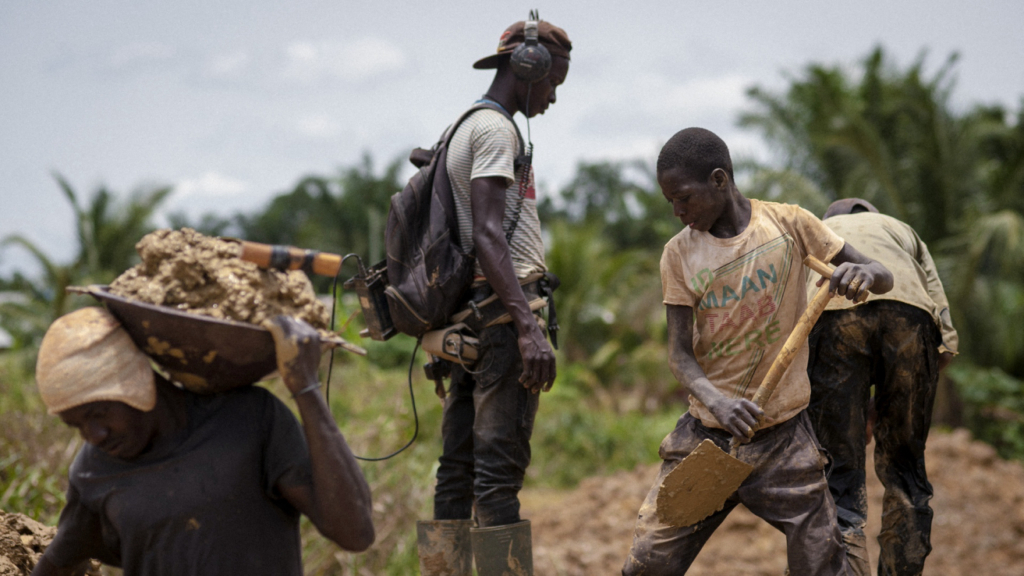
Empower chiefs, youth with Incentives to win galamsey battle – Centre for Climate Change and Food Security
A group of Galamseyers, illegal gold panner, work on a gold field in Kibi on April 10, 2017. Ghanaian government has decided to put an end to Galamsey activities in Ghana accusing the miners of the high pollution of the environment and the destruction of the landscape. (Photo by CRISTINA ALDEHUELA / AFP)
A leading climate research group is calling on the government to adopt a more community-led approach by empowering local communities with a “reward-for-results” system that trades environmental protection for tangible development projects.
The Centre for Climate Change and Food Security (CCCFS) argues that the long-running fight against galamsey, often reliant on military taskforces and arrests, has failed because it excludes the very people most affected by the destruction.
In a new proposal, the organisation suggests that the government should assign specific anti-galamsey targets to each mining-affected community and, in return, reward their success with scholarships, roads, health centres, and other critical infrastructure.
“The fight against galamsey cannot be won from offices far away from the affected communities,” said Engr. Mahmud Mohammed-Nurudeen, Executive Director of CCCFS. “It must be owned and led by the very people whose lives depend on the rivers and forests being destroyed.”
The CCCFS model, detailed in a recent statement, is designed to create a direct incentive for communities to become environmental protectors.
Under the proposed system, a community’s priority development needs would be directly tied to its performance in curbing illegal mining, preventing river pollution, and reclaiming degraded land.
For instance, a traditional area that maintains zero illegal mining for a year could be rewarded with a fully-equipped maternity clinic. Youth groups that help report galamsey activities could gain vocational training or seed funding for start-ups, while communities that prevent river pollution could receive solar-powered boreholes.
“When chiefs and citizens know their success will bring schools, water systems, and scholarships, they will rise to protect their own environment,” Engr. Mahmud explained.
The centre believes this community-led model would foster greater ownership and accountability than the current strategy, which has seen billions of cedis invested with limited success in restoring Ghana’s polluted water bodies and degraded forest reserves.
The proposal draws inspiration from successful reward-based conservation programs in other African nations like Rwanda and Kenya.
The CCCFS recommends that progress should be transparently tracked by local monitoring committees comprising chiefs, youth and women’s leaders, and assembly members. Once verified, the government or development partners would deliver the promised projects.
This new push for a strategic shift in the galamsey fight comes as the government continues to grapple with the devastating environmental and public health impacts of illegal mining, which has contaminated major rivers and destroyed vast tracts of arable land.
DISCLAIMER: The Views, Comments, Opinions, Contributions and Statements made by Readers and Contributors on this platform do not necessarily represent the views or policy of Multimedia Group Limited.
DISCLAIMER: The Views, Comments, Opinions, Contributions and Statements made by Readers and Contributors on this platform do not necessarily represent the views or policy of Multimedia Group Limited.











